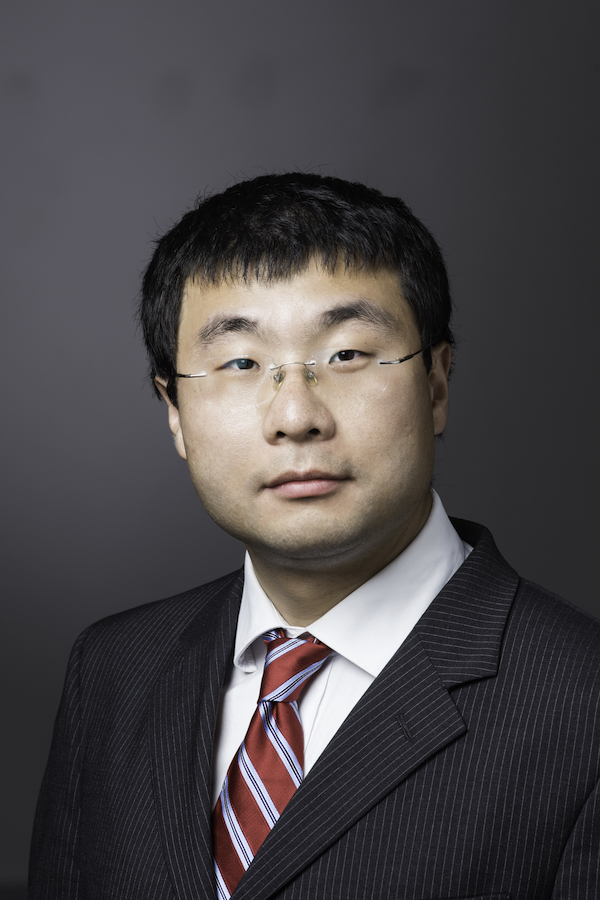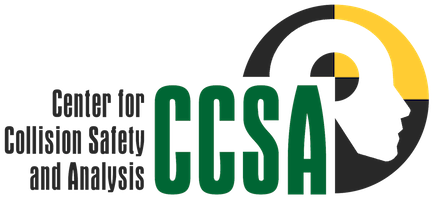
lwang28@gmu.edu
Room 2118
(703) 993‒4659
Research Assistant Professor Leyu (Douglas) Wang
Dr. Wang received his Ph.D. degree in Mechanical and Aerospace Engineering from The George Washington University in . He joined George Mason University in as a research assistant professor.
Dr. Wang’s research areas include computational solid mechanics, finite element modeling, reverse engineering modeling, fracture mechanics, crashworthiness, molecular dynamics, multi‐scale analysis, and artificial intelligence in computer aid engineering. He is a key research team member in a multi‐year FAA sponsored engine containment research program, responsible for the development and implementation of titanium material model for high velocity impact analysis and failure prediction for aerospace structures.
Dr. Wang was a pioneer in research for using energy release rate in fracture mechanics simulation and analysis. He first established the continuum mechanics equivalent stress and strain in molecular dynamics. He has been actively published in the technical community including government reports, a book chapter, journal articles, and conference papers.
Selected Professional Publications (2019 February)
Journal Papers, Book Chapters, and Government Reports
- Leyu Wang, Kelly Carney, William Emmerling, & Cing‐Dao Kan. (). “An Evaluation of
*MAT_224for Simulation of Impact and Failure—Part 1: A Scaling Approach for Modeling AMS 4911 Titanium Plates with Different Thicknesses and Properties”, Federal Aviation Administration Report DOT/FAA/TC‐17/43. - Leyu Wang, Cing‐Dao Kan, Son Mai Phub, & Jian Lu. (2017). “Optimal Cross Section Design of Axial Compressed Tube for Energy Absorption”, International Journal of Terraspace Science and Engineering, 1(1).
- Leyu Wang, James D. Lee, & Cing‐Dao Kan. (2016). “Work Conjugate Pair of Stress and Strain in Molecular Dynamics”, International Journal of Smart and Nano Materials, 7(3), 144–78. doi:10.1080/19475411.2016.1233141
- Leyu Wang, Jiaoyan Li, & James D. Lee. (2016). “Work Conjugate Strain of Virial Stress”, International Journal of Smart and Nano Materials, 7(1), 39–51. doi:10.1080/19475411.2016.1162218
- James D. Lee, Jiaoyan Li, Zhen Zhang, & Leyu Wang. (). “Sequential and Concurrent Multiscale Modeling of Multiphysics: From Atoms to Continuum”. In: Shaker A. Meguid and George J. Weng (eds.) Micromechanics and Nanomechanics of Composite Solids. Springer, Cham. pp. 1–38. doi:10.1007/978-3319-52794-9_1
- Sean Haight, Leyu Wang, Paul Du Bois, Kelly Carney, & Cing‐Dao Kan. (). “Development of a Titanium Alloy Ti‐6Al‐4V Material Model Used in LS‐DYNA”, Federal Aviation Administration Report DOT/FAA/TC‐15/23.
Conference Papers and Presentations
- Leyu Wang, Paul Du Bois, Kelly Carney, William Emmerling, & Cing‐Dao Kan. (). “A Temperature and Strain Rate Dependent Material Model with Tension‐Compression Asymmetry for 0.25 inch Ti-6Al-4V Plate”, 15th International LS‐DYNA Users Conference.
- Stefano Dolci, Kelly Carney, Leyu Wang, Paul Du Bois, & Cing‐Dao Kan. (). “The effect of Inconel-718 high strain rate sensitivity on ballistic impact response using
*MAT_224”, 15th International LS‐DYNA Users Conference. - Stefano Dolci, Kelly Carney, Leyu Wang, Paul Du Bois, & Cing‐Dao Kan. (). “Incorporation of Inconel-718 material test data into material model input parameters for
*MAT_224”, 14th International LS‐DYNA Users Conference. - Leyu Wang, Filippo Dicecca, Sean Haight, Kelly Carney, Paul Dubois, William Emmerling, & Cing‐Dao Kan. (). “Test and Simulation Comparison using Titanium Material Model based on
*MAT_224”, 14th International LS‐DYNA Users Conference. - Leyu Wang, James D. Lee, & Cing‐Dao Kan. (). “Work Conjugacy in Molecular Dynamics”, Proceedings of the Society of Engineering Science 53rd Annual Technical Meeting.
- Leyu Wang and James D. Lee. (). “Energy Release Rate Based Dynamic Crack Propagation”, Proceedings of the Society of Engineering Science 51st Annual Technical Meeting.
